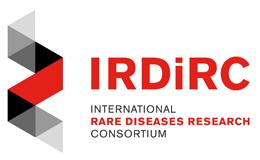Topics AMED as First IRDiRC Member Institution from Japan
Topics
AMED will participate in policy discussions at IRDiRC, which contributes to the acceleration of research and development (R&D) in rare diseases. Shared among the members are challenges attracting global attention, including the clinical trials environment and framework (e.g. patient consent, evaluation, and guidelines), and the standardization of data sharing (e.g. genotypic and phenotypic profiles, which are often stored in separate registries or databases and thus hard to aggregate).
Smaller patient populations lead to a greater risk in drug development without a scheme realizing worldwide data sharing and multinational clinical trials. AMED aims to take advantage of updates from the IRDiRC members to harmonize the national R&D environment, thereby maximizing impact to local and global medical communities. In parallel, AMED also focuses on communicating to the consortium the activities and accomplishments of Japan’s more than 40-year history of “nambyo” (rare and intractable diseases specifically defined in a Japanese policy document) research.
The promising opportunities at IRDiRC will help AMED deliver better solutions to patients suffering from rare/intractable diseases, having them live a better LIFE in three meanings—the biological life, the everyday life, and the human life.
About IRDiRC

IRDiRC, established in 2011, is an international consortium of research funding agencies and interested parties. With their ambitious goals of delivering 200 new therapies and means to diagnose 6,000 rare diseases by 2020, 42 member institutions from 18 countries (as of July 2015) are working together to accelerate research and development related to rare diseases through global collaborations.
IRDiRC is governed by an Executive Committee, three Scientific Committees (Diagnostics, Interdisciplinary, and Therapies) and several Task Forces. Discussion at these bodies has led to partial but significant contribution to the progress towards the abovementioned goals. As of July 2015, according to the IRDiRC website, 149 medicinal products and more than 3,300 disease-related genes assume to be available.
Contact
| Division Name | Division of Rare/Intractable Disease Research, Department of Research Promotion Japan Agency for Medical Research and Development (AMED) |
|---|---|
| nambyo-info “at” amed “dot” go “dot” jp |
08/26/15
Last updated 08/26/15

